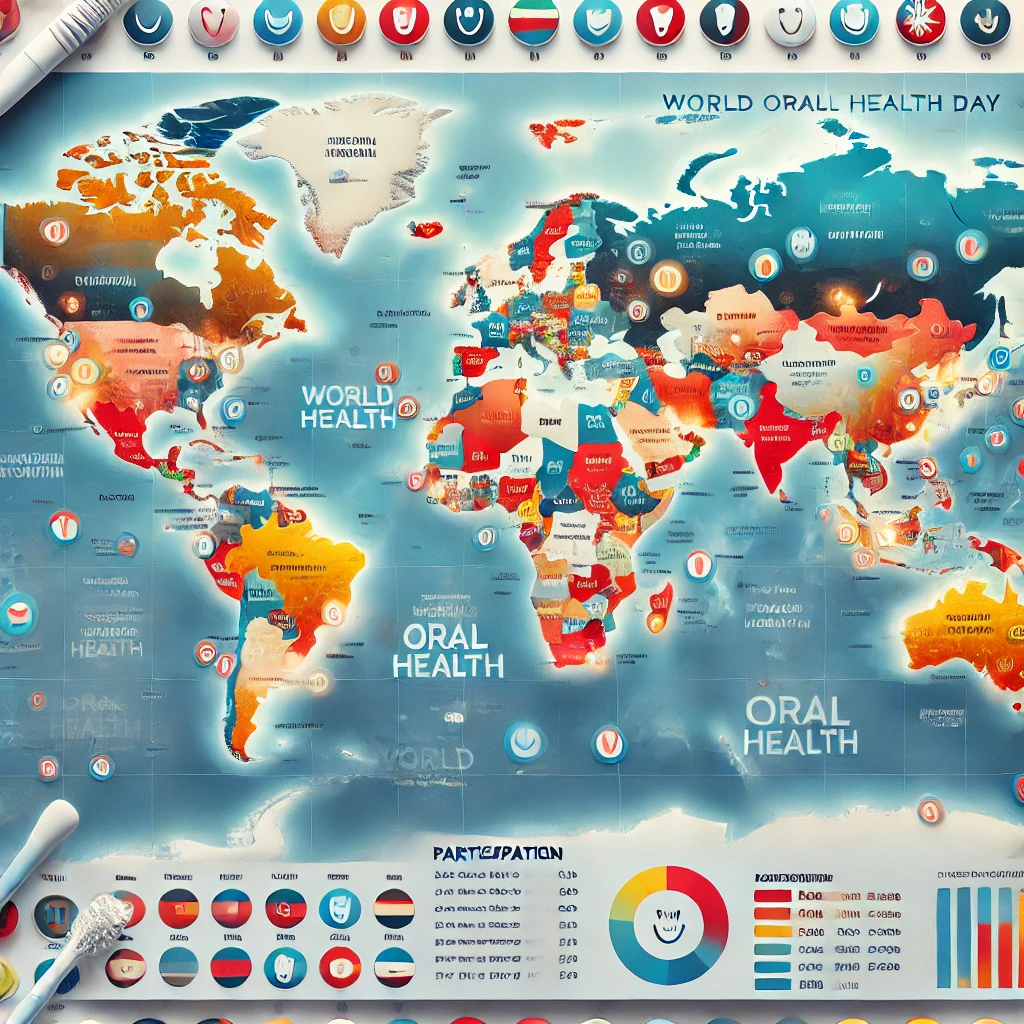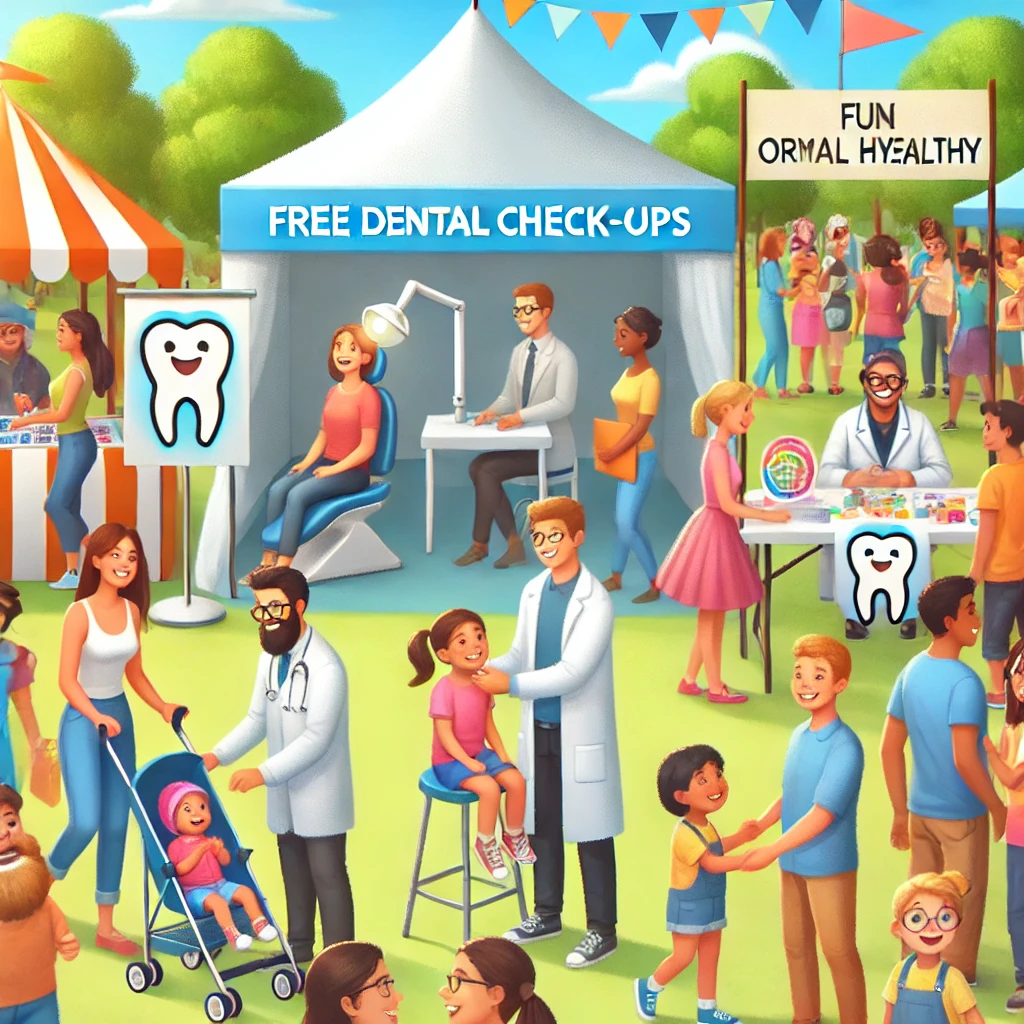
Oral health is a vital component of overall well-being, yet it often remains neglected in global health priorities. This year, World Oral Health Day 2025, observed on March 20, shines a spotlight on the importance of oral hygiene and its connection to noncommunicable diseases (NCDs). With the theme “A Happy Mouth is… A Happy Mind”, the campaign calls for collective action to prevent oral diseases and improve quality of life.
Why World Oral Health Day Matters

World Oral Health Day (WOHD), organized by the FDI World Dental Federation, is celebrated annually to raise awareness about oral health’s impact on overall health. With 90% of the global population likely to suffer from oral diseases in their lifetime, this day emphasizes prevention, education, and access to care for all12.
Oral diseases such as dental caries, gum disease, and oral cancer are among the most common NCDs. Left untreated, these conditions can lead to severe complications, including systemic diseases like heart disease, diabetes, and respiratory infections3.
The Link Between Oral Health and NCDs
Oral health is closely tied to other NCDs. For example:
Periodontal disease worsens diabetes management.
Poor oral hygiene increases the risk of cardiovascular disease.
Tobacco and alcohol use contribute to both oral cancers and other systemic illnesses.
By addressing shared risk factors—such as unhealthy diets high in sugar, tobacco use, and alcohol consumption—countries can reduce the burden of both oral diseases and NCDs34.
Prevention: The Focus of WOHD 2025
This year’s campaign emphasizes prevention as a cost-effective strategy to combat oral diseases. Here are some key preventive measures promoted globally:
Daily Oral Hygiene: Brush twice daily with fluoride toothpaste.
Healthy Diet: Reduce sugar intake and consume more fruits and vegetables.
Regular Dental Checkups: Visit a dentist every six months.
Avoid Tobacco and Alcohol: Both are major contributors to oral and systemic diseases12.
Governments are also encouraged to implement policies such as sugar taxes on beverages and water fluoridation programs to promote healthier behaviors at a population level4.
The Role of Public Awareness
Public education campaigns are central to WOHD 2025. Schools, workplaces, and community centers are key platforms for spreading awareness about:
Proper brushing techniques.
The importance of fluoride in preventing tooth decay.
Early detection of oral diseases through regular dental visits.
This year’s theme, “A Happy Mouth is… A Happy Mind”, underscores how good oral health contributes not only to physical well-being but also to mental health and self-confidence12.
Global Efforts for Universal Oral Health Coverage
The World Health Organization (WHO) has set ambitious goals under its Global Oral Health Action Plan 2023–2030. These include:
Integrating oral health into universal health coverage (UHC).
Expanding access to essential oral health services in primary healthcare settings.
Reducing out-of-pocket expenses for dental care.
By 2030, WHO aims for at least 50% of countries to adopt national fluoride guidelines and 70% to implement sugar taxes on sugary drinks4.
Challenges in Achieving Better Oral Health
Despite global efforts, significant barriers remain:
Limited Access: Many low-income populations lack affordable dental care.
Workforce Shortages: There is a global shortage of trained dental professionals.
Health Inequities: Disparities in access to care persist between high-income and low-income countries.
Innovative solutions like tele-dentistry and mobile clinics can help bridge these gaps by making dental care more accessible in underserved areas23.
How You Can Participate in WOHD 2025

Individuals can take simple yet impactful steps to support this year’s campaign:
Share educational materials on social media using hashtags like #WorldOralHealthDay or #HealthySmile.
Organize community events such as free dental check-ups or workshops on oral hygiene.
Advocate for policies that prioritize preventive care.
Dental professionals can also contribute by offering free consultations or participating in public awareness drives.
Conclusion: A Collective Responsibility
World Oral Health Day 2025 serves as a reminder that “there is no health without oral health.” Governments, healthcare providers, communities, and individuals must work together to prioritize prevention. By addressing shared risk factors with NCDs and improving access to care, we can create healthier communities worldwide.
Let’s make this year’s campaign a success by taking meaningful action toward better oral health for all!